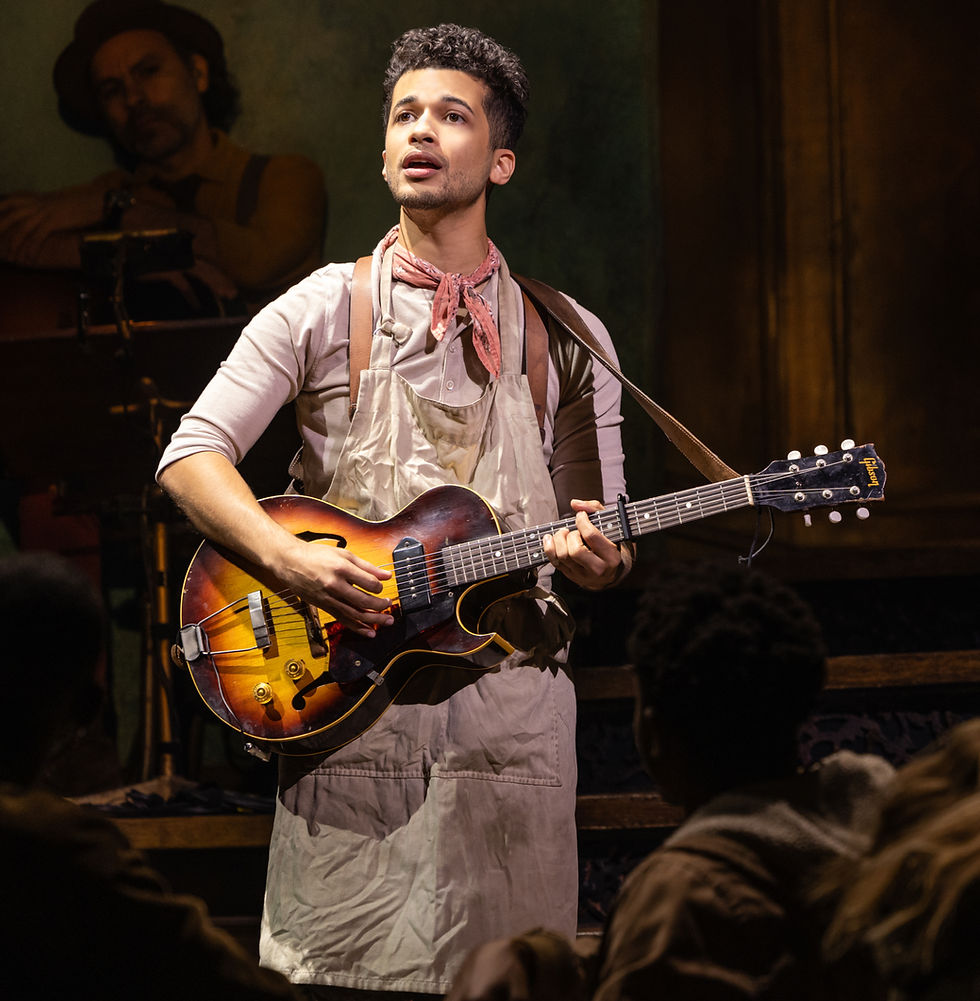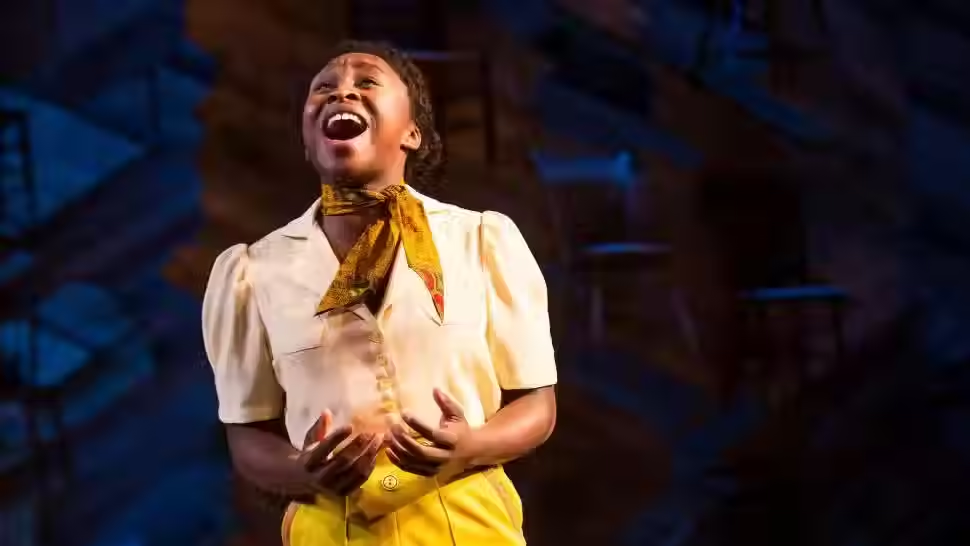Broadway’s Soft Boys: How Vulnerability Became a Musical Power Move
- Waymon Hudson

- Sep 21, 2025
- 3 min read
Updated: Nov 19, 2025
🎭 The Rise of Broadway’s Soft Boys

Not every male lead needs to enter stage left with a sword, a smirk, and swagger.
Sometimes?
He’s just holding a pen.
Some of the most powerful male characters in musical theatre aren’t defined by bravado — they’re defined by their vulnerability. Their poetry. Their ache.
These are Broadway’s soft boys.
And I’m obsessed with them.
🎶 Broadway Soft Boys We Love

To be clear — softness doesn’t mean weakness.
In fact, some of the most iconic musical theatre moments are sung by characters who are cracked wide open. They ache out loud. And they lead not with fists, but with feelings:
Tony in West Side Story – Dreamy, doomed, and full of yearning.
Gabe in Next to Normal – All metaphor and mystery.
Evan Hansen – Awkward, anxious, and emotionally raw.
Orpheus in Hadestown – Literal poet-boy energy.
Jamie in The Last Five Years – Before it all goes downhill.
These characters remind us that masculinity can make space for softness. And that emotion? Can be the most magnetic thing onstage.
💔 Speakeasy’s Softest Rebel: Rome

In Speakeasy: A New Musical, that softness lives in Rome — a quiet, poetic soul born into a world of violence.
His father Marco is a bootlegging kingpin. But Rome?
He hides behind metaphors. He traces his feelings in margins.
In his first solo, *Girl in the Margins*, Rome is on the roof at the Velvet Boot — nervously talking to Jules fot the first time. He doesn’t try to win her. He tries to understand her. He sings:
“You’re the girl in the margins — the note on the side./The voice in the hush they’ve taught me to hide.”
The metaphor of “margins” is doing double-duty here:
The margins of a page — where Rome writes the thoughts he can’t say aloud.
And the margins of society — where Jules lives, dismissed and overlooked for her queerness and quiet defiance.
He sees her. Not as an object of desire — but as a revelation.
“You’re ink on the edges, not part of the plan./But now that I’ve read you… I know who I am.”
It’s not just a crush. It’s a map.
It’s softness as survival.
💥 Why Softness Is Rebellion
When the world tells boys to be hard, soft becomes subversive.
Rome is expected to follow the family business. To inherit violence. To “man up” and push down anything tender.
Instead?
He writes poems.
He names feelings.
He chooses love over legacy.
That’s radical.

And in *Speakeasy*, where the themes of queerness, identity, and chosen truth run deep — Rome’s softness isn’t just romantic. It’s political.
He finds a voice not through shouting… but through singing:
“You’re ink on the edges / Not part of the plan / But now that I’ve read you / I know who I am.”
That lyric might be about Jules.
But it’s also about himself.
Rome sees in Jules the same margins he’s tried to live in. And in singing to her, he steps out of them.
This is a boy who finally speaks.
And that softness? Becomes strength.
🎧 Listen to Girl in the Margins
Want to feel that quiet ache for yourself?
And stay tuned — next up in the Behind Broadway series, we’ll talk about what happens when softness gets shut down.
Because in Speakeasy, that vulnerability gets challenged — hard — by a father who believes power only comes through control.
You’ve met Broadway’s soft boys.
Now get ready to meet the hard men who fear them.
✨ Until then, keep singing the quiet truths.
Read more Behind Broadway Breakdowns:
Learn about classic broadway song structure and Jules' character arc in Speakeasy:
Read the arc on Broadway's Soft Boys, Masculinity, and Rome's arc in Speakeasy:
And now we're starting on Queer Broadway, longing, love, and Merc's arc in Speakeasy:
And follow Addie's journey as we explore rebellion, freedom, and breaking the mold:





Comments